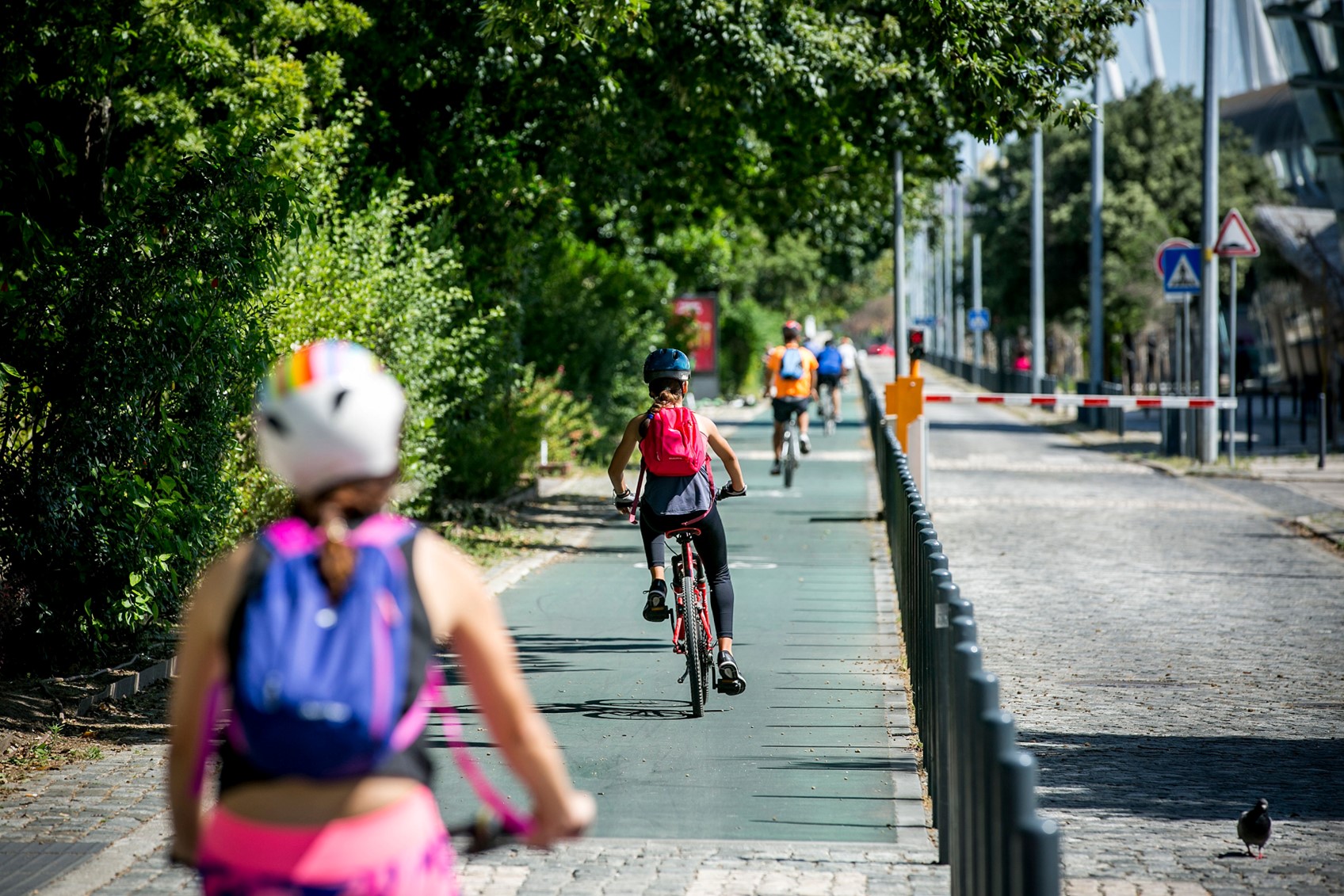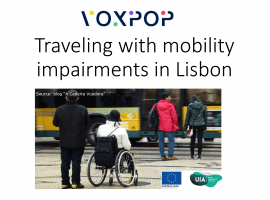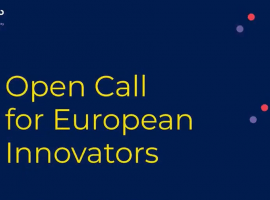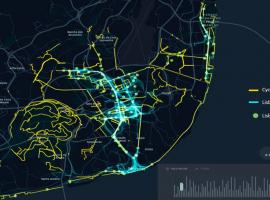Significant improvement of accessibility for people with reduced mobility aiming at a higher quality of life.
Needs of people with disabilities should be defined and analyzed towards higher accessibility (e.g. indicating which are the accessible vehicles) and security (reporting tools to alert about potential dangerous points).
Update: Often in Lisbon, shared mobility vehicles are poorly parked, cluttering sidewalks and pedestrian areas, thus creating unsafe environments for people with reduced mobility, such as people in wheelchair and visually impaired. A smoother and ordered operation of e-scooters and e-bikes in the city is needed. Deloitte is helping Lisbon municipality on the design of a regulation model and tool for shared mobility management, more specifically e-scooters and e-bikes. With this new regulation model and management tool, among other things Lisbon Municipality will be able enforce e-scooter parking and act on poorly parked vehicles, ensuring a proper an efficient management of shared mobility, which is key for improving accessibility for people with reduced mobility.
CARRIS operates an on-call DRT-type service for people with wheelchairs and has a strong interest on improving the service for people with disabilities. With regards to innovative mobility services, CARRIS is currently establishing a DRT service, as part of a pilot project with CEF funding, which may be extended to lines with suitable characteristics (e.g. night services). For this purpose, data from the other mobility service providers should be utilized.
Additionally, this challenge is included in the ones identified by the Innovators Alliance. Challenge 3: Mapping accessibility for persons with reduced mobility (PRM) of journeys on public transport.
Finally, it is also supported by the Open Call by 1 out of 4 of the selected proposals.
End of the project update: The project delivered an important output, a mapping tool presenting the side walk's gross width which covers the entire city.

Other main improvements in the mobility landscape for the city of Lisbon
First, improve the mobility of those that live, work, study and visit the city of Lisbon, including school mobility and having special focus on the inclusive mobility of vulnerable people (dedicated routing and improvement of conditions).
Update: CARRIS designed a tool for supporting mobility of people with reduced mobility (people in wheelchair and visually impaired). The tool is currently in procurement and it will include features considered to be of priority for users in the co-design processes implemented, including for example alerts for blind people about which station to get off the bus and an assessment of the presence of a shelter in bus stops.
Second, reduce the use of private cars in the city, increase of the share of bikes and expansion of the bicycle network, reduction of the number of road accidents towards zero deaths and regenerating public spaces, not only in Lisbon but also in the other municipalities.
Update: This was the original goal of the project and it remains the same. Several challenges were identified and data was made available to demonstrate how this expectation can be met. It is also supported by the Open Call by 1 out of 5 of the selected proposals.
End of the project update: The tool for supporting mobility of people with reduced mobility was finally not developed, only commercial requirements are available. However, the upgraded open data portal of EMEL empowers everyone (citizens and visitors) with real-time information about pedestrian and cycling infrastructure, traffic and parking (on- street and off-street) status as well as electric vehicle charging stations location.

Creation of an eco-system able to share dormant, scattered, and silo-ed operational data.
Integrated information from both public and private transport service providers should be available and the establishment of links with the other members of the eco-system facilitated. Local operators already collect data related to safety or to the performance of the systems aiming to work with the city to improve the conditions when the data depicts conflictive areas or operation problems. Moreover, collaborations with local police and the local parking company to solve operation problems due to incidents are already established. However, these still rely in human operators and are therefore not as efficient as if they would be if they were relying on automatic communication channels between the involved actors, facilitating the information flow.
Update: There need for data sharing for real-time management and long-term mobility planning have been recognized, however this issue will remain as one of the challenges to overcome after the end of the project. There is a clear maturity gap between public and private stakeholders regarding digital innovation conversations while at the same time there is an important mismatch of public and private interest in sharing data. Thus, the data supporting the identified challenges was limited to the one provided by the public authorities. However, the creation of the Urban Access Point will create a trusted environment for entities to exchange information based on bilateral agreements supported by a local platform for data sharing. Additionally, with the new regulation model and management tool, micromobility operators will share operational data with the municipality.
End of the project update: The Urban Access Point was not finally created due to the lack of a shared data model, but it was replaced by the upgraded EMEL open data portal, in which also private data sets can be available to verified and trusted users.

To put a seed that will grow to a better data collection infrastructure in Lisbon and to a better dialogue and collaboration between all the actors of the mobility eco-system.
Transform corporate data into strategic assets to improve the quality of life of our fellow citizens, providing them a services that meet their expectations and needs”. These strategic assets should also improve the efficiency of business processes, encourage problem solving and support management in the planning- and the decision-making process. At the end VoxPop should create a culture of "co-evolution" because data and its uses, will continue to evolve. This means that the skills needed to collect, categorize, assess, and act on data will need to evolve, too.
In the same direction as in the above expectation, the fact that only data provided by public authorities were used illustrate the difficulty to engage the private sector. However, the Innovators Alliance was founded, and it is the seed for a better dialogue between all the actors of the mobility eco-system. Moreover, the collaboration of the public partners allowed to solve common problems of all partners in order to enable a mobility eco-system. More specifically, the conversations and collaboration with micromobility operators will serve as an example for future dialogues among Lisbon Municipality and other transport operators. Also, such collaboration can be mimicked by other areas and operators, e.g. energy, water, waste management operators.
It is also supported by the Open Call by 1 out of 6 of the selected proposals.
End of the project update: Collaboration has been achieved between public institutions, and also with the participation of one private entity, thus this expectations has been fulfilled, to a lower extent than expected but still achieving data sharing with an international private transport operator.
Standardize data generated by the actors of the mobility ecosystem of Lisbon following European standards.
Data standardization and communication protocols such as DATEXII should be promoted, in line with other international, national and local relevant projects such as C-Roads, C-Streets, IDACS, DATA4PT, UVARBox, EU-EIP and of course the implementation of the Portuguese NAP (National Access Point). Especially relevant to VoxPop is the NetEx standard, which is conceived for multimodal public transport data.
The expectations are still high, but many difficulties are foreseen to get the Urban Access Point.
End of the project update: even if the Urban Access point was not finally developed, all datasets from EMEL and CARRIS available in the open data portal were harmonized according to DATEX II and NeTEx. Some gaps were identified in the standrads (which are still evolving) and were communicated to the DATEX community.



























